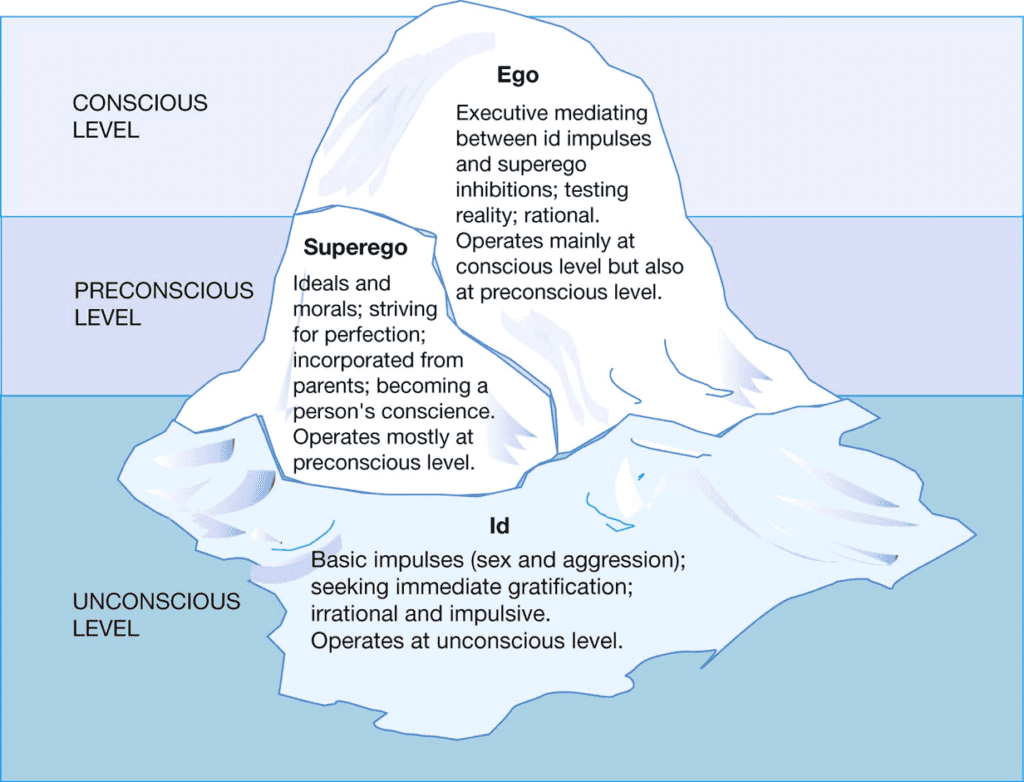The metaverse technology can severely harm your mental health, say experts.
You might be familiar with the concept of the metaverse. For the past few months, it’s been making headlines all over the news and the internet. And because of its unmatched potential several tech giants are now interested in getting in on the metaverse scene.
But at the same time, many people are worried that the supposed benefits of metaverse may not be worth facing the mental health risks that come along. And this has started a massive debate among tech and health experts.
So, is the metaverse bad?
Actually, there’s no simple answer to this question. Any technology that we’ve developed so far has both good and bad effects on society. And that’s why in this post, we’ll have an objective look at both sides of the debate. We’ll analyze the psychological benefits versus the risks of the metaverse. So, by the end, you’ll have enough information from a psychological standpoint to decide whether or not you should engage with the metaverse.
But, before moving further, if you have never heard of the metaverse or need more information, you can visit my post, “Metaverse: The New Concept Changing Technology Forever.”
This post will focus purely on the psychological impact of the metaverse. So, if you’re new to this concept, my previous post is a good entry point. And, with that said, let’s begin.
What is the Human Psyche?
Prior to understanding how metaverse can affect your mental health, you need to first understand the human psyche and how it works. That’s because the things we do, express, and emote every day are actually a product of our psyche. And the impact of something on it has direct effects on your mental health.
Sigmund Freud, also known as the father of psychoanalysis, once mentioned that the human psyche is made of three elements—ego, superego, and id.

Id is defined as “the primitive and instinctive component of our personality.” For example, evolution has engraved the need for social connections and fame deep inside our unconscious brain. And id is in-charge of those needs. Now, if you leave it up to id, it will make you do the craziest things to fulfill your innermost desires.
On the other hand, the superego is something that you develop as you grow older. Things like morals and values that you learn by observing and participating in society around you.
Let’s take the concept of stealing as an example. When you see a nice thing, your id says you need to have that, no matter what. But your superego tells you that you can’t get that thing until you go through the morally correct route of buying it.
Say you ignored your superego and stole that thing without anyone noticing. You’ll start having feelings of shame and guilt. And on the other hand, if you buy that thing with your hard-earned money, you get the feeling of pride and satisfaction. That’s the superego in action.
Finally, ego is something that moderates your other two personalities. It’s the only part that situates in your conscious brain and the one that works by reason and not influences.
How Does this Relate to Metaverse?
Now, I’m sure you’re wondering how ego, superego, and id relate to the metaverse’s psychological effects on your mental health.
See, your conscious brain has very little control over your actions, how you behave, and what you express. So, even though ego is the moderator, most of the time, it can’t control when id and superego are working at full capacity.
The way metaverse tech is being developed, the plan is to target the superego and id sections of your personality, leaving very little control for your ego.
So, when your id and superego get more control, it can cause several problems. Just think of the effects social media had on us.
The Not-So-Social, Social Media
Today, social media is a significant part of our lives. Without social media, it almost seems impossible to meet new people, connect with friends or even families, for that matter.
But, how long has it been around? One would say that the early 2000s was a huge time for socializing on the internet. In 2004, My-Space achieved the million active members a month milestone. But that’s not where it began. Even before My-Space, there were internet chatrooms like AIM, MSN, and Yahoo Chat.
Still, if you ask an evolutionary biologist, they’d say that social media is relatively new. That’s because, though it’s been a long time, it hasn’t been around for so long to change our psyche on an evolutionary level.
Think about how people socialized before the internet. There were telephones, sending notes, snail mail, beepers, and sending messages through mutual acquaintances.
Even before that, meeting people in real life was the only option.
Our psyche is based on that reality. So, even though we like to think that we’re socializing on social media, we’re just staring at something emitting light, completely alone for our unconscious brain. And this is the very reason why problems like loneliness and depression are prevalent even at this time when we’re connected to the whole world.

But that’s just one part of the equation.
The second part concerns your ego convincing your id and superego that social media is real socializing. Something to fulfill our desires and something to be happy about. This causes a hyper reaction in those two personalities fueling problems like FOMO, problematic internet use (PIU), and people going above and beyond for internet fame. Regardless, the way metaverse tech is being developed, experts predict it to amplify the effects social media has on our mental health. Have a look.
Metaverse: A Successor to the Internet?
The word metaverse started hitting a buzz as soon as Mark Zuckerberg announced the name change for his company— from Facebook to Meta. The loose definition of the metaverse would be a highly immersive, digital alternative to the physical world we live in (emphasis on the word “alternative”).
The metaverse promises that, with its technology, we can create our own avatars using which we can work, pursue hobbies, play, shop, explore the digital space, and engage in online communities. And it will certainly not be like using the internet on your phone, tablet, or computer. With the power of virtual and augmented realities, it will be like metaverse has actually pulled you inside the internet, and you’re in a new world.

Zuckerberg calls it “the next chapter of the Internet.” So basically, the metaverse is not only a successor to social media, but it’s here to completely change the way we use the internet. And be mindful that the technology capable of doing this already exists. Though, much of it is at an early stage, and it’s not– yet– commercialized.
Soon, metaverse will be a significant part of our lives. And despite it having a ton of benefits, experts are also worried about the effects it can and will have on our mental health. Have a look.
Distorted and Personalized Realities
Louis Rosenberg, the individual who created the world’s first fully functional augmented reality system, says that the changes metaverse tech is promising are really not the kind of changes we’d want to have in our lives. It’s terrifying, and it possesses the ability to severely distort our reality and heavily interfere with how we perceive things in real life.
Imagine walking down the street and seeing completely different things than others. Let’s take it up a notch and say, what if you can’t control what you see?
If you look at the history of social media over the past decade, you’ll see how it’s made us susceptible to misinformation and distortions. From deepfakes and botnets to fake news and troll farms, all live on social media, and we have no control over them. And on the flip side of the coin, they do have a psychological control over what we perceive to be real.
But so far, we can simply turn off our phones, disconnect from everything and experience the real, authentic world. But with metaverse, it may not be possible, say experts.
“Personally, I find this terrifying,” said Rosenberg in his article on Big Think. “That is because augmented reality will fundamentally change all aspects of society and not necessarily in a good way.”
Rise in Problematic Internet Use
Another problem associated with the metaverse is addiction. See, the internet and social media are already highly addictive. The way they entertain us and take care of our boredom in a click leaves us wanting something better every time.
Now, imagine a virtual world that features a capacity for engagement that is several times that of the already quite addictive social media. The metaverse offers an escape from reality, which means you’ll probably spend much more time inside the metaverse than in the real world.
This could give rise to problematic internet use. And as a result, more people would suffer from problems like isolation, anxiety, and depression.
Metaverse’s Relation to Schizotypy?
An individual with schizotypy suffers from an unusual and disorganized pattern of thinking; as well as cognitive disorganization and impulsive nonconformity. Research studies have found that excessive use of digital tech can cause an individual to develop this problem.
In a few cases, schizotypy is also related to a much severe psychological problem called schizophrenia.
So, does using the internet cause schizotypy?
To explore this, researchers from Italy and the UK set up a study. They gathered 100 participants aged between 20 to 30 years old.
The subjects were already suffering from problems like depression, anxiety, and problematic internet use (PIU).
Upon examining, the researchers found that 30% of people who exhibited major signs of PIU had schizotypal personality traits compared to others.
Meta (previously Facebook) says that “in the coming years ... people will transition from seeing us primarily as a social media company to seeing us as a metaverse company … In many ways, the metaverse is the ultimate expression of social technology.”
And experts fear that engaging in virtual interactions to that extent can cause a rise in the number of people suffering from psychoses-like problems (schizotypy)—especially those involving delusions and hallucinations.
Body Image
In the past decade, we’ve seen a significant rise in cases of body dysmorphic disorder. It’s a mental health problem where individuals can’t help but constantly think about perceived flaws or defects in their appearance. A flaw that others may not even see.
This is a serious condition that causes them to have lower self-esteem, less confidence, and even develop problems like anxiety and depression.

When Zuckerberg shared his vision for the metaverse, he also pointed out that Meta’s version of the metaverse will include lifelike avatars with hyper-realistic features that will engage in a ton of similar activities that we do in the real world—just digitally.
So basically, this means that instead of us, a digital representation of ourselves will talk, eat, shop, date, and more.
“The goal here is to have both realistic and stylized avatars that create a deep feeling that we’re present with people,” said Zuckerberg in his speech about rebranding Facebook.
“If avatars really are on their way, then we’ll need to face some tough questions about how we present ourselves to others, noted Tanya Basu in her article published in the MIT technological review. “How might these virtual versions of ourselves change the way we feel about our bodies, for better or worse?
Metaverse technology carries the potential to fuel body dysmorphia to a severe extent. And there’ll be very little that we can do about it. This is because, if we look at the trends in technology development, they’re designed to interact with our psyche on a deeper level and not where we’re the ones consciously making decisions.
But, It Has Psychological Benefits Too
So far, we’ve only looked at the adverse psychological effects metaverse can have on mental health. But the fact is, that’s not all it has to offer.
As I already mentioned above, “any technology that we’ve developed so far has both good and bad effects on society.” And metaverse, too, has a good side. Have a look.
VR PTSD & Anxiety Treatment
Virtual Reality (VR) is already a significant part of the therapeutic space. Currently, therapists use something called virtual reality exposure therapy (VRET) to help patients with problems like anxiety, panic disorders, and PTSD find a safe space where they can process their feelings.
Experts say that VRET helps decrease the intensity of stress responses that you may experience to thoughts, situations, and memories that provoke anxiety or fear.
Since VR is a huge chunk of where metaverse is headed, many think it can revolutionize the therapeutic space for mental health patients.
VR & Treatment of Psychiatric Problems
Experts believe that metaverse can also be a safe space for people suffering from problems like schizophrenia. The theory is that when a patient puts on a VR headset and lets themselves in the metaverse, it will ease the symptoms of schizophrenia-like delusions and hallucinations.
But at the same time, psychologists are also concerned that metaverse will not be a controlled environment. So, if it will actually help schizophrenic patients or not is a ‘yet-to-see.’
So, What Should You Feel About the Metaverse?
Seeing the psychological effects that metaverse can have on our mental health, it seems to be in our best interest that we try and stop metaverse tech from rolling out. But that’s not exactly a good idea.
Here’s what Dr. Phil Reed has to say about this.
Once again, we are seeing a situation in which a digital technology company is proposing a product that has great destructive potential for public health without being subject to proper scientific risk-testing.
So, the problem is not the product itself. It’s who is building the product and how are they doing it. Metaverse certainly has adverse effects, but we can’t also deny the fact that it has the potential to benefit us greatly.
So, instead of opposing the tech itself, we can vocalize for more research, scientific risk assessments, and strict regulations on how this tech should be developed.
This way, we can ensure that our loved ones and we are on the safer side while enjoying this incredible advancement in technology.
Final Thoughts
We can’t look at the metaverse as simply good or bad. If you choose to be on either side, you’d be ignoring a massive chunk of this tech that can and will have an impact on your life.
So, instead of doing that, I recommend welcoming the technology while still being cautious about its effects. And we have just the right thing for you.
My company Shield Your Body recently launched season 2 of “The Healthier Tech Podcast,” where experts from different industries share their knowledge on how you can live a healthier life alongside technology. And the best part is it’s absolutely free to stream, and we’re available on all major platforms. So, give it a listen.

















